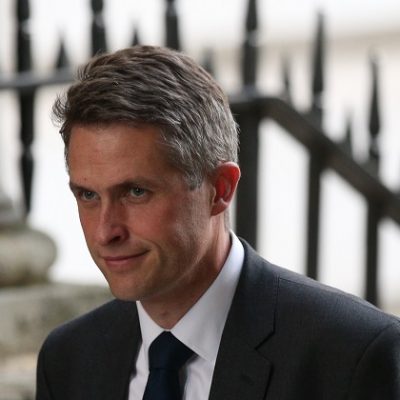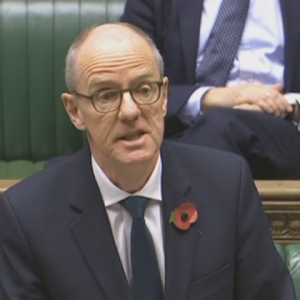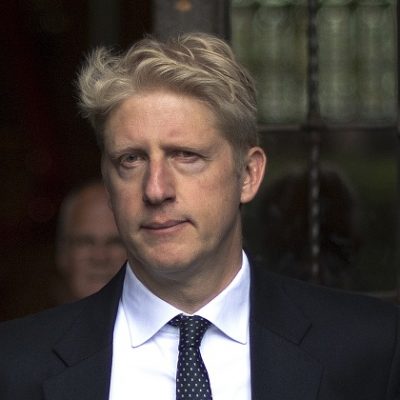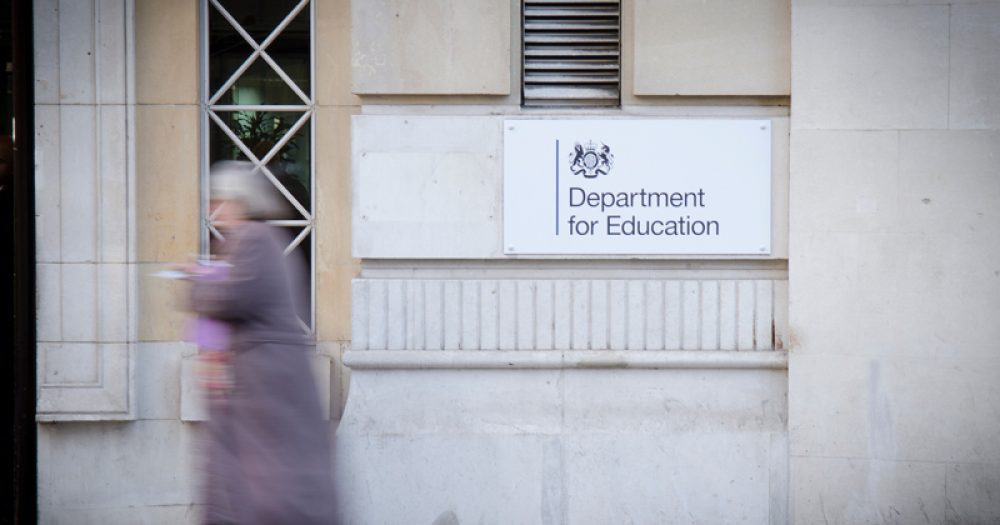The Department for Education’s new ministerial team is now complete.
Boris Johnson has finished his reshuffle after becoming Conservative leader and prime minister.
Here’s your handy guide to who’s who on the seventh floor of Sanctuary Buildings.
Gavin Williamson
Education secretary
 The MP for South Staffordshire since 2010, Williamson previously served as Theresa May’s chief whip and defence secretary, before he was sacked following allegations he leaked confidential information, allegations he denies.
The MP for South Staffordshire since 2010, Williamson previously served as Theresa May’s chief whip and defence secretary, before he was sacked following allegations he leaked confidential information, allegations he denies.
During his time as defence secretary, Williamson commissioned a report into how military values could benefit schools. It has yet to be published.
He has also previously campaigned for a better funding settlement for schools, focusing on regional variations in funding between his own rural constituency and other better-funded areas.
As well as leading the department, it has also been announced that Williamson will “lead” on skills, after the government failed to replace Anne Milton as minister of state for skills and apprenticeships.
Responsibilities
- early years
- children’s social care
- teachers’ pay
- the school curriculum
- school improvement
- academies and free schools
- further education
- higher education
- apprenticeships and skills
Nick Gibb
Schools minister

The MP for Bognor Regis and Littlehampton survived the latest reshuffle despite rumours of his impending departure from the department he has served for most of the past decade.
Gibb has already served a combined six years and five months in the role of minister of state for schools, and seven years and two months’ service at the department.
Appointed as schools minister by David Cameron in May 2010, Gibb served in the role until September 2012, when he was replaced by Liberal Democrat David Laws and returned to the backbenches.
But he didn’t stay away from the department long. He became a junior minister for school reform in July 2014, and returned to the minister of state role the following May after the Liberal Democrats left government following their heavy general election defeat.
He is the government’s main cheerleader for a knowledge-rich curriculum, strict behaviour policies and rigorous testing of pupils.
Responsibilities
- recruitment and retention of teachers and school leaders (including initial teacher training, qualifications and professional development)
- supporting a high-quality teaching profession (including links to National College for Teaching and Leadership)
- reducing teacher workload
- admissions and school transport
- national funding formula for schools and school revenue funding
- curriculum, assessment and qualifications (including links with Ofqual)
- school accountability (including links with Ofsted)
- personal, social, health and economic education (PSHE), relationships education, relationships and sex education (RSE) and children and young people’s mental health
- preventing bullying in schools
- behaviour and attendance, exclusions and alternative provision policy
Lord Agnew of Oulton
Academies minister

Agnew, the founder of the Inspiration Trust academy chain and a faithful disciple of the academies programme, also remains in his post following Johnson’s reshuffle.
The Conservative peer is a controversial figure, in part because of his background in business and outsourcing, but also because of his regular outbursts about school finances.
Last year, he got into hot water after he wagered schools a bottle of Champagne that he could find additional savings in their budgets. He has described himself as being like a “pig hunting for truffles” when it comes to making savings.
His personal wealth remains tied up in a blind trust for the duration of his time as a minister. He also does not receive a salary for his ministerial duties.
Responsibilities
- free schools, university technical colleges and studio schools
- academies and multi-academy trusts
- faith schools
- independent schools
- home education and supplementary schools
- intervention in underperforming schools
- school improvement (including teaching school alliances, national and local leaders of education and school improvement funds)
- school governance
- school capital investment (including new school places, school condition, land and playing fields)
- counter extremism and integration in schools, further education colleges and sixth-form colleges
Kemi Badenoch
Children’s minister
 The MP for Saffron Waldren replaced Nadhim Zahawi, who moved to the Department for Business, Energy and Industrial Strategy.
The MP for Saffron Waldren replaced Nadhim Zahawi, who moved to the Department for Business, Energy and Industrial Strategy.
Previously a back-bencher, Badenoch has repeatedly called for an increase in school funding, acknowledging in parliamentary contributions that the government now asks schools “to do much more than they ever have”.
Schools Week reported this week how Badenoch will immediately face pressure from the schools community to address a crisis in SEND funding.
The think tank IPPR North recently found that the amount of funding available for pupils with the most complex needs has reduced by 17 per cent across England since 2015.
The government has also announced that Badenoch will help cover the skills brief handed to her boss Gavin Williamson after former skills minister Anne Milton was not replaced.
Responsibilities
- children’s social care including child protection, children in care, adoption, care leavers, social work, local authority performance and family law
- special educational needs including high needs funding
- education policy in response to the race disparity audit
- safeguarding in schools
- disadvantaged pupils – including pupil premium and pupil premium plus
- school sport, healthy pupils and school food, including free school meals
- early years policy including inspection, regulation and literacy and numeracy
- childcare policy, inspection and regulation
- delivery of 30 hours free childcare offer
- social mobility including opportunity areas
- DfE contribution to cross-government work to tackle rough sleeping
Jo Johnson
Universities minister
 This isn’t the first stint at the DfE for the MP for Orpington and brother of Boris. He previously served in the same role between May 2015 and January 2018 before moving to the transport department and eventually resigning over Brexit.
This isn’t the first stint at the DfE for the MP for Orpington and brother of Boris. He previously served in the same role between May 2015 and January 2018 before moving to the transport department and eventually resigning over Brexit.
Johnson was also previously a minister for London and cabinet office minister. Before that, he was director of the Number 10 policy unit, advising David Cameron.
Like his brother, he attended Eton College and the University of Oxford. However, unlike Boris, he is on the pro-European left of the Conservative Party.
Responsibilities
According to the DfE, his responsibilities “will be confirmed in due course”.








I don’t know what type of glue keeps Nick Gibb’s nether regions attached to his chair, but I have several; outstanding DIY tasks…………..
Our poor children , they deserved so much better……… Gove, Gibb……. gorblimey!
So which of the ministers have actual experience in education?
Despite being a schools minister since September 2017, Lord Agnew’s involvement with Inspiration Trust, the multi-academy trust he founded, did not end until February 2019. This has given rise to concerns about possible conflict of interests. These include the controversial DfE- sanctioned merger in September 2018 of an Inspiration free school, Trafalgar College, opened in 2016, and Inspiration’s Great Yarmouth Charter Academy, opened in September 2017.
Charter has rebranded itself as a free school. Trafalgar College has disappeared from the DfE’s database of schools. It’s not even listed as a ‘closed school’ or given as a link to Charter.
Trafalgar College no longer exists; it never existed.
What previous experience do any of these people have of working as a teacher or with children or the education system? I hope they have current and ex-teachers as advisors otherwise they will have no clue about the pressures and mental health issues affecting so many teachers and children.